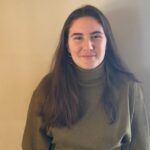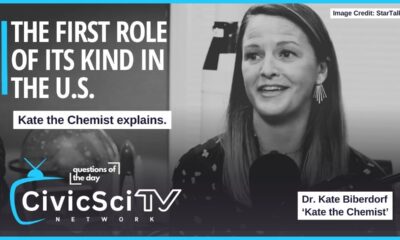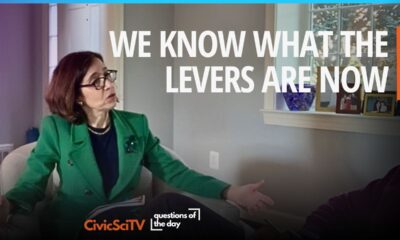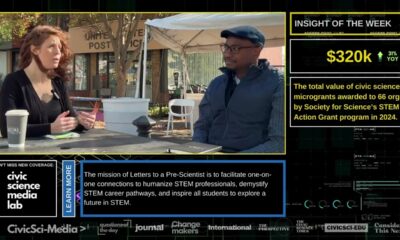Questions of the Day Program
Science Unlocked: Empowering incarcerated and system-impacted learners
Fanuel Muindi interviews Anagha Krishnan and Hannah Dada, co-founders of Science Unlocked, a program designed to bring hands-on science education to incarcerated youth in Washington, D.C.
Recognizing that “students in secure facilities had never had the chance to do hands-on science—never looked at cells under a microscope or launched a bottle rocket,” Anagha explains how the program fills a critical gap in STEM education for system-impacted youth. Through monthly demonstrations at the Youth Services Center, Science Unlocked engages students with practical experiments that connect science to their everyday lives.
Hannah reflects on the program’s impact: “It’s so rewarding to see the light bulbs go off when students realize, ‘This is my DNA. This is what makes me who I am?” Their demos, like building speakers using physics concepts, resonate deeply with students, some of whom are aspiring musicians. “We’re not trying to turn every student into a scientist,” Anagha adds, “but science is part of life, no matter what you choose to do.”
Science Unlocked is a past recipient of microgrant funding from Research!America which enabled them to purchase critical supplies for their demos and expand their reach in the early days of the initiative. The co-founders also discuss their vision for scaling Science Unlocked nationwide, partnering with organizations like the Petey Greene Program to ensure sustainability. Looking ahead, they aim to expand to re-entry programs and create pathways for students to pursue their newfound interests post-release.
Learn more about Science Unlocked
Research!America Civic Engagement Microgrant Program
Chapters
0:00 CivicSciTV Intro
0:16 QOTD Intro
0:36 Previously on QOTD
1:20 Meet the Founders
2:10 What is Science Unlocked?
4:30 Filling a Critical Gap
6:25 Hands-On Science
8:45 Misunderstood Goals
11:40 Building Partnerships
14:00 Demos in Action
15:45 Teaching Incarcerated Youth
17:55 Student Engagement
20:00 Measuring Impact
23:00 Long-Term Learning
25:00 Challenges of the Setting
27:08 Finding the Time
31:00 Key Learnings
33:00 Future Opportunities
35:30 Scaling the Program
38:10 The Power of Partnerships
42:10 Tracking Student Outcomes
44:48 Final Reflections
45:40 Rapid Fire Questions
How to cite the conversation: Dada, H., Krishnan, A., and & Muindi, FJ. Science Unlocked: Empowering incarcerated and system-impacted learners. (Video) Civic Science Television. Dec 18, 2024. https://www.youtube.com/watch?v=ckK_F_Mgwto
Eileen has a BA in Comparative Literature and Studio Film/Videommaking from Harvard University. She coordinates multiple programs on the CivicSciTV Network, and manages the social media posts, and newsletters.

-
 Audio Studio1 month ago
Audio Studio1 month ago“Reading it opened up a whole new world.” Kim Steele on building her company ‘Documentaries Don’t Work’
-
Civic Science Observer1 week ago
‘Science policy’ Google searches spiked in 2025. What does that mean?
-
Civic Science Observer1 month ago
Our developing civic science photojournalism experiment: Photos from 2025
-
Civic Science Observer1 month ago
Together again: Day 1 of the 2025 ASTC conference in black and white
Contact
Menu
Designed with WordPress
























